Interview With an International: Ipek Kotan
In this edition of our Interview Series, I had the pleasure of sitting down with esteemed ceramic artist Ipek Kotan. Ipek runs her ceramic teaching studio Clay Studio Leiden, alongside her art studio where she creates artworks that are commissioned and bought by art collectors, museums and luxury design businesses such as Cartier and Christian Liaigre. Originally hailing from Turkey, Ipek has traversed 7 countries and 3 continents before finding her niche in this dynamic city. Throughout our conversation, we delve into the nuances of her relocation journey, the quest for a sense of belonging, and the discovery of community. During my visit to her studio, nestled in the centre of Leiden, I found a space that exudes a rustic yet inviting ambience, surrounded by an array of completed and in-progress artworks. From her refined vessel art pieces to her experimental projects and the creations of her students, the atmosphere within Ipek's studio resonates with a genuine sense of dedication and warmth.
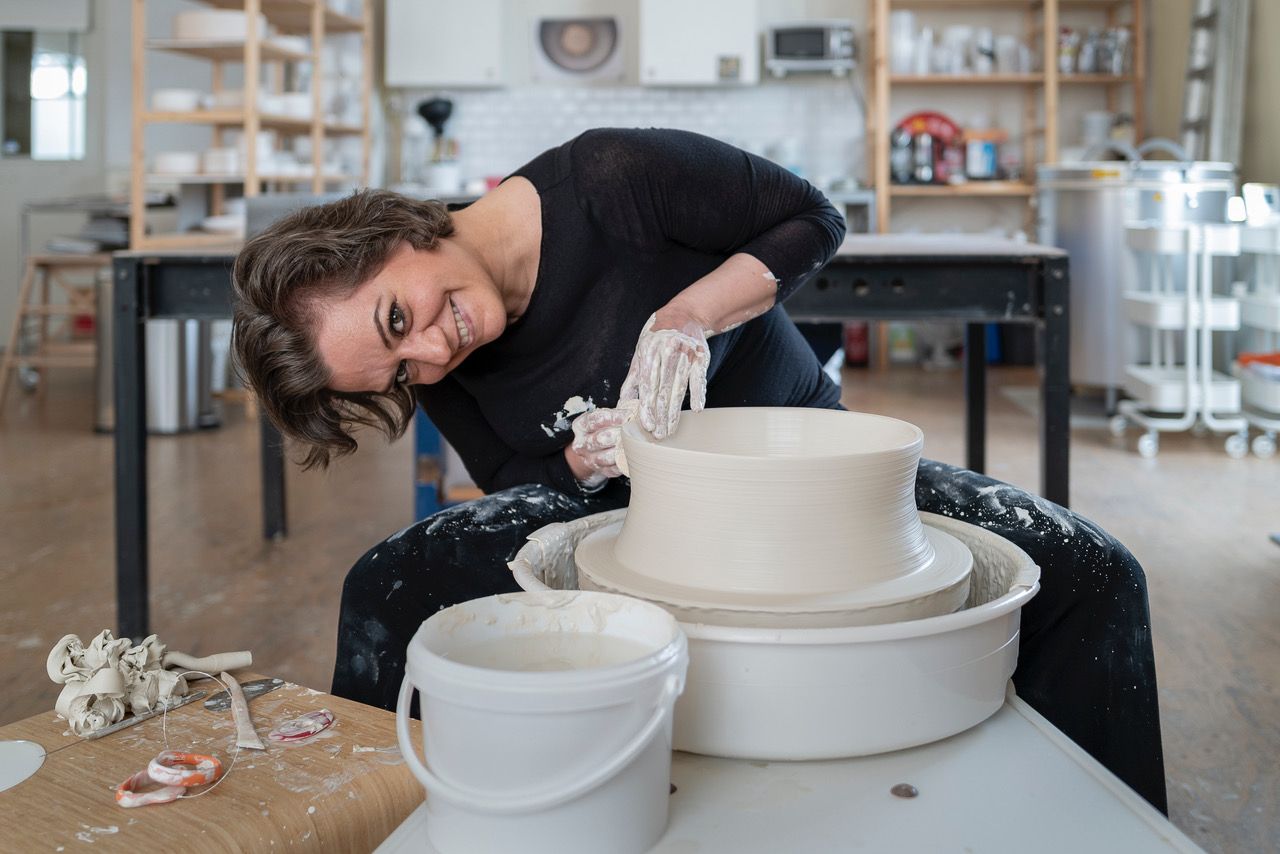
Tell me about yourself and your background.
IK: I was born and raised in Istanbul through high school. I studied media arts and communication in Boston. For some years I worked in various sectors and jobs and at the age of 30 I went back to university full-time to study art. First went to Rhode Island School of Design to study ceramics, design and art history and later moved to England and got my master’s degree in ceramics.
Besides Turkey, the States and England, I have also lived and worked in Indonesia, Austria, Switzerland. Indonesia was the shortest of all my adventures abroad, less than a year actually but I really loved it there and seriously considered moving there. It felt a bit too far away from everyone I was close to though, so I decided not to.
Eventually I moved to the Netherlands in 2016, because at the time I still wanted to stay in Europe but didn’t want language to be a problem and I knew from my Dutch friends that Dutch culture would be easy for me to adapt to. I find Dutch people easy to get along with, everyone speaks English well and I find the Dutch people I come into contact with on a daily basis to be pretty easy-going and levelheaded.
After our initial conversation, Ipek delves deeper into the factors that led her to choose the Netherlands, particularly Leiden, as her new home. Leiden was not the only place in the Netherlands she has lived in, having first spent a year at the renowned ceramic in Brabant (EKWC European Ceramic Workcentre). She is the only artist to have been allowed to stay for a year since the EKWC was established back in 1969. Prior to relocating to Leiden, Ipek’s priority was finding the right environment to work on her two solo art exhibitions.
“Before I moved [to Leiden], I found a studio first. That was very important for me especially after having had a home studio for two years, which was not good for me. I could never relax. There was never a feeling of leaving the studio to come home. I loved the aesthetics, the feel and history. The energy in this building is really special.”
According to Ipek, the building, Haagweg 4, her studio is located in is more than just a workspace; it's an incubator filled with artists and creatives who share a sense of camaraderie.
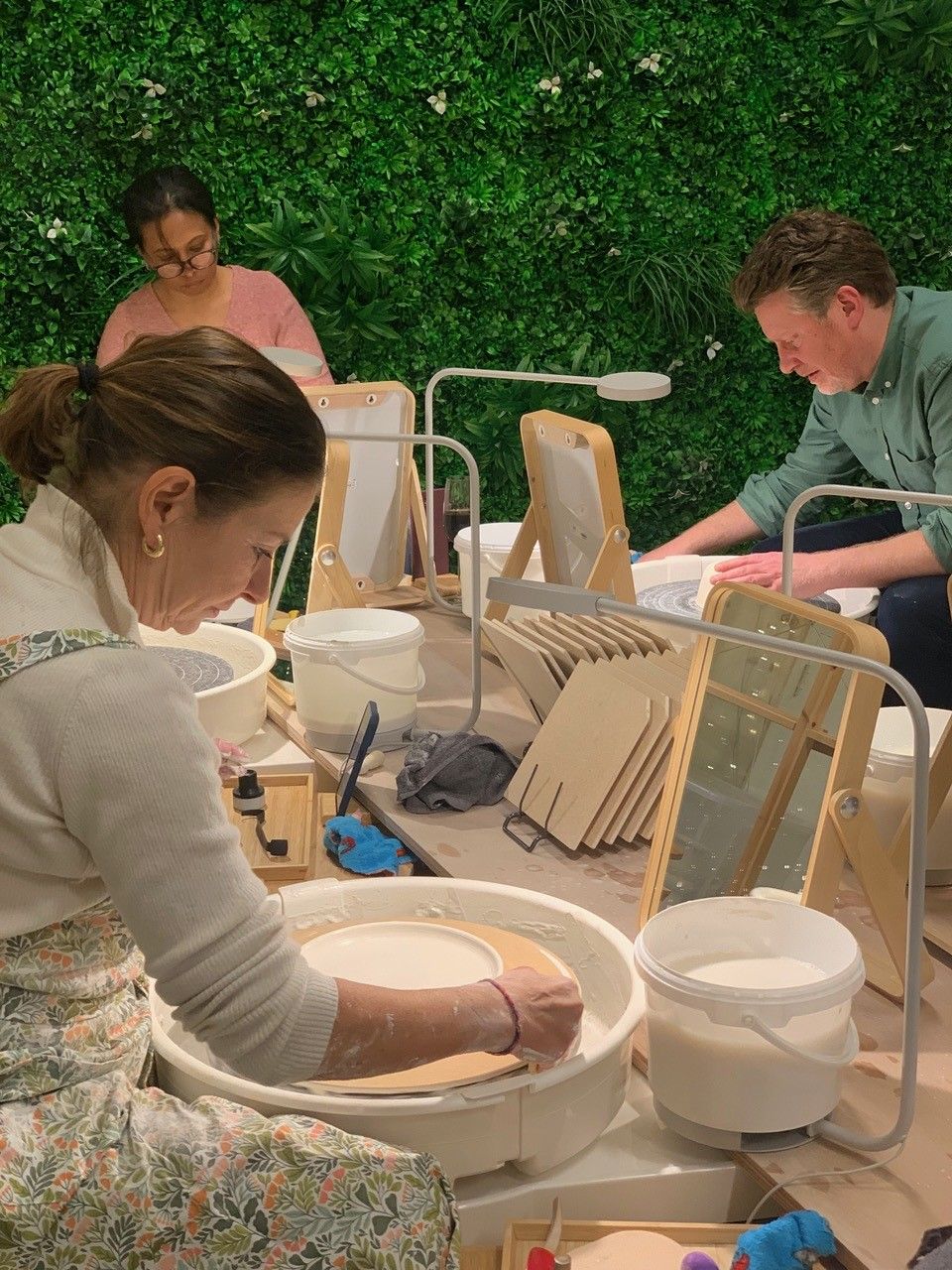
“It was really important for me to find a place like that where I [felt] like I belonged. To imagine moving to a space where there weren’t a lot of artists around would make me feel very isolated. This building is one of the reasons why I considered the idea of coming here. As long as I’m in the Netherlands, I’m staying here, I’m not moving again.”
Undoubtedly, embracing change presents its fair share of challenges – yet, for Ipek, the role of teaching in her clay studio has grounded her. Her studio is somewhat of an international hub, with 35% of her students being internationals and representing over 25 different countries.
As our discussion about the community she's cultivated unfolds, it becomes clear that the pottery classes serve as a gateway to something more profound: “We have pizza nights, celebrate birthdays, anniversaries, promotions, we go to concerts together and introduce new people to each other.
I’m delighted and very proud that our community keeps growing stronger and bigger each year and that we’re so much more than a ceramic studio. People come for ceramics, but I really think they stay for the community.”
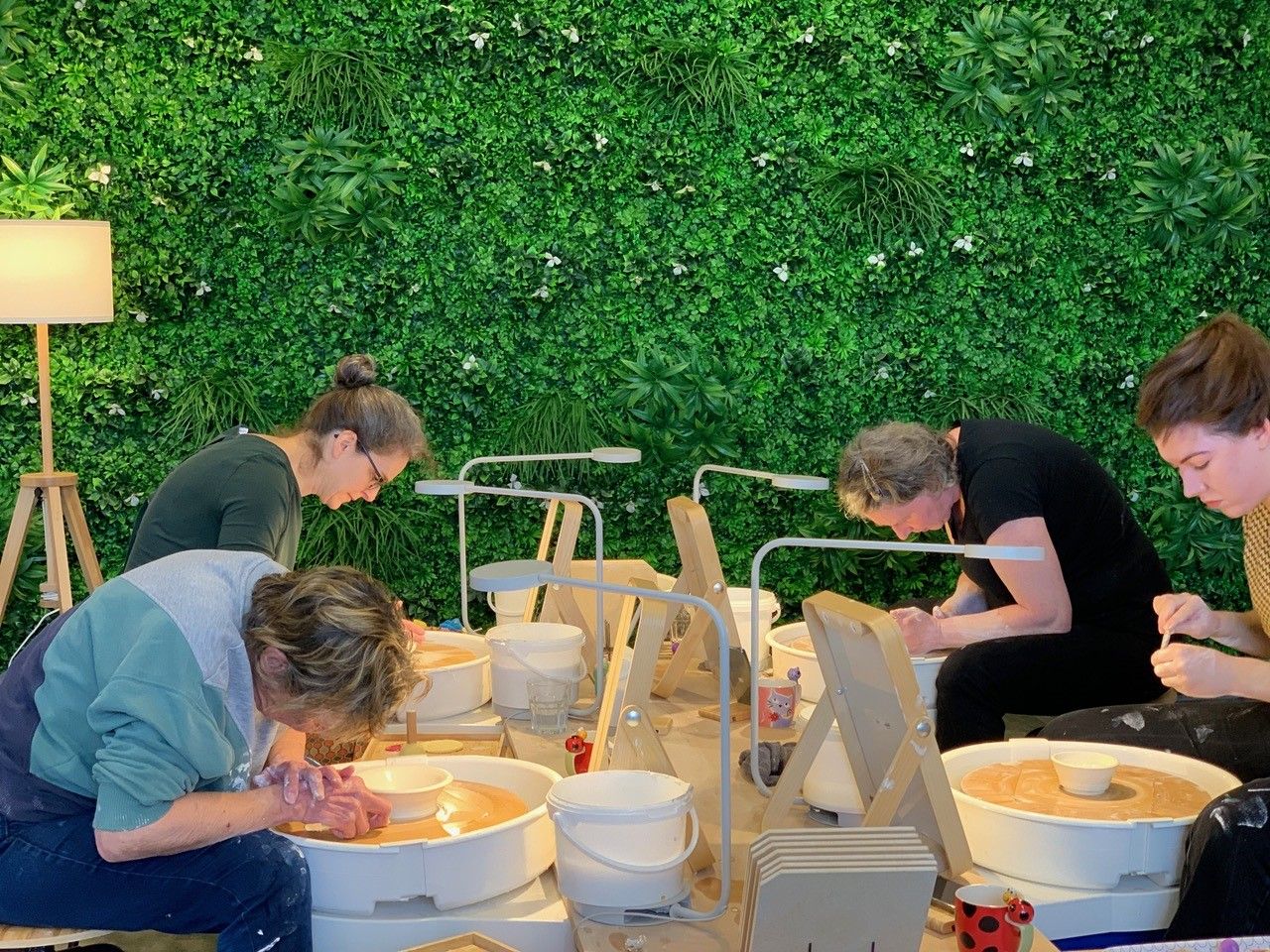
At times where she struggles to integrate with the Dutch community, she emphasises the importance of initiatives such as Meet&Mingles, and other international meet-ups: “I overcame [difficulties] by going to meet-ups. Both on Meetup and also meetups organised by the Leiden International Centre. They helped me. It just made me feel like okay, there’s actually a bunch of us. I’m not alone. Socially, I think it’s really important to connect with people. I think it’s really important to meet like-minded people; that’s probably the lifeline that all internationals need.”
How much of a difference does it make being in a community?
IK: It makes a huge difference! Especially if you move to a country on your own and you work on your own or remotely as opposed to in the company of colleagues every day. I have come to a lot of Leiden International Centre’s [Meet&Mingles] met a lot of people there. I think those are great and I’m actually thankful for the Mingles, especially for making me feel like I belonged when I first moved to Leiden before I knew many people.
Ipek is also in the process of designing a special wheel-throwing course for people who are in therapy for various reasons such as PTSD (post-traumatic stress disorder), complex PTSD, eating disorders, burn-out, depression, addiction, etc. She believes very strongly in the healing power of ceramics in general and wheel-throwing in particular and wants to use her empathic and ceramic skills in helping people heal.
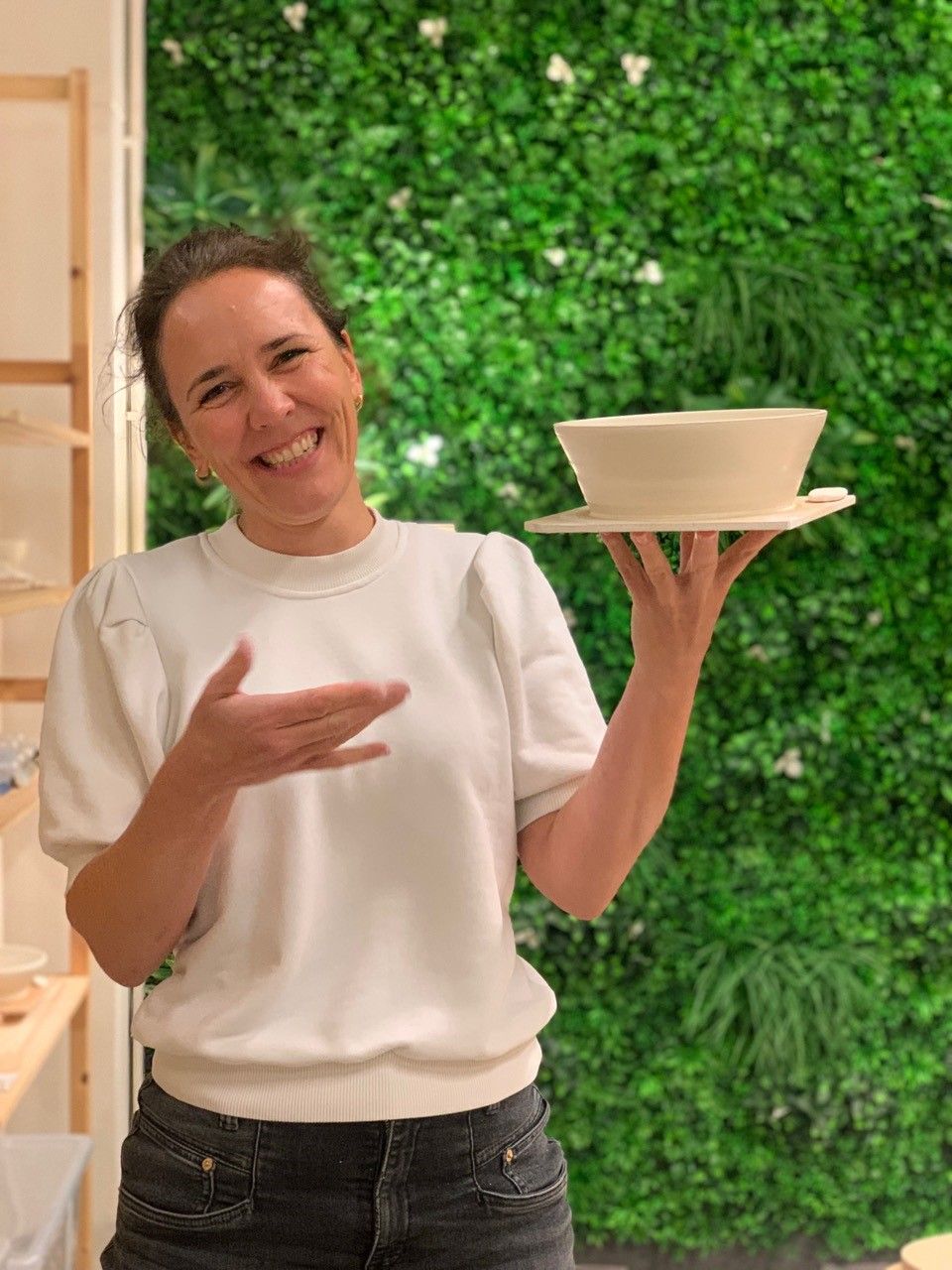
As we near the end of our conversation, I want to ask her about future plans, goals and advice her younger self might’ve needed.
IK: If I could go back, I would tell my younger self in college to broaden my social circle, include more people who came from different backgrounds and had different interests than mine. I would tell myself to try to get out of my comfort zone and not worry so much about fitting in, to be more okay with being my quirky self.
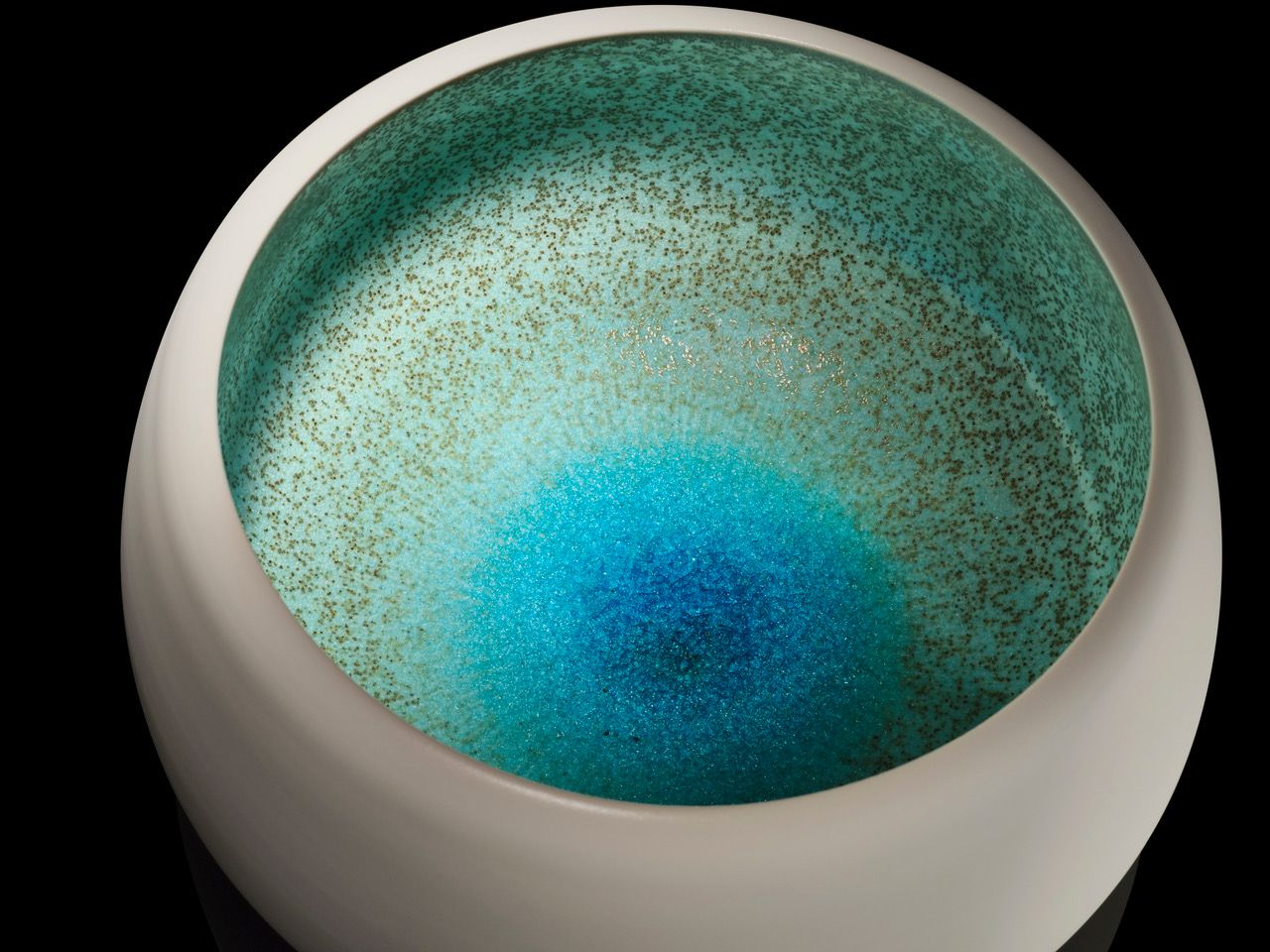
Do you see yourself moving around [more]?
IK: Probably, one day, when the time is right… But as long as I live in the Netherlands, I will continue to live in Leiden.
While on one hand Ipek feels an urge to explore other parts of the world due to her nomadic and free-spirited soul, she acknowledges it requires uprooting yourself every time: “Time will show. Leiden will always have a special place in my heart. Mainly because of the studio and the community.”